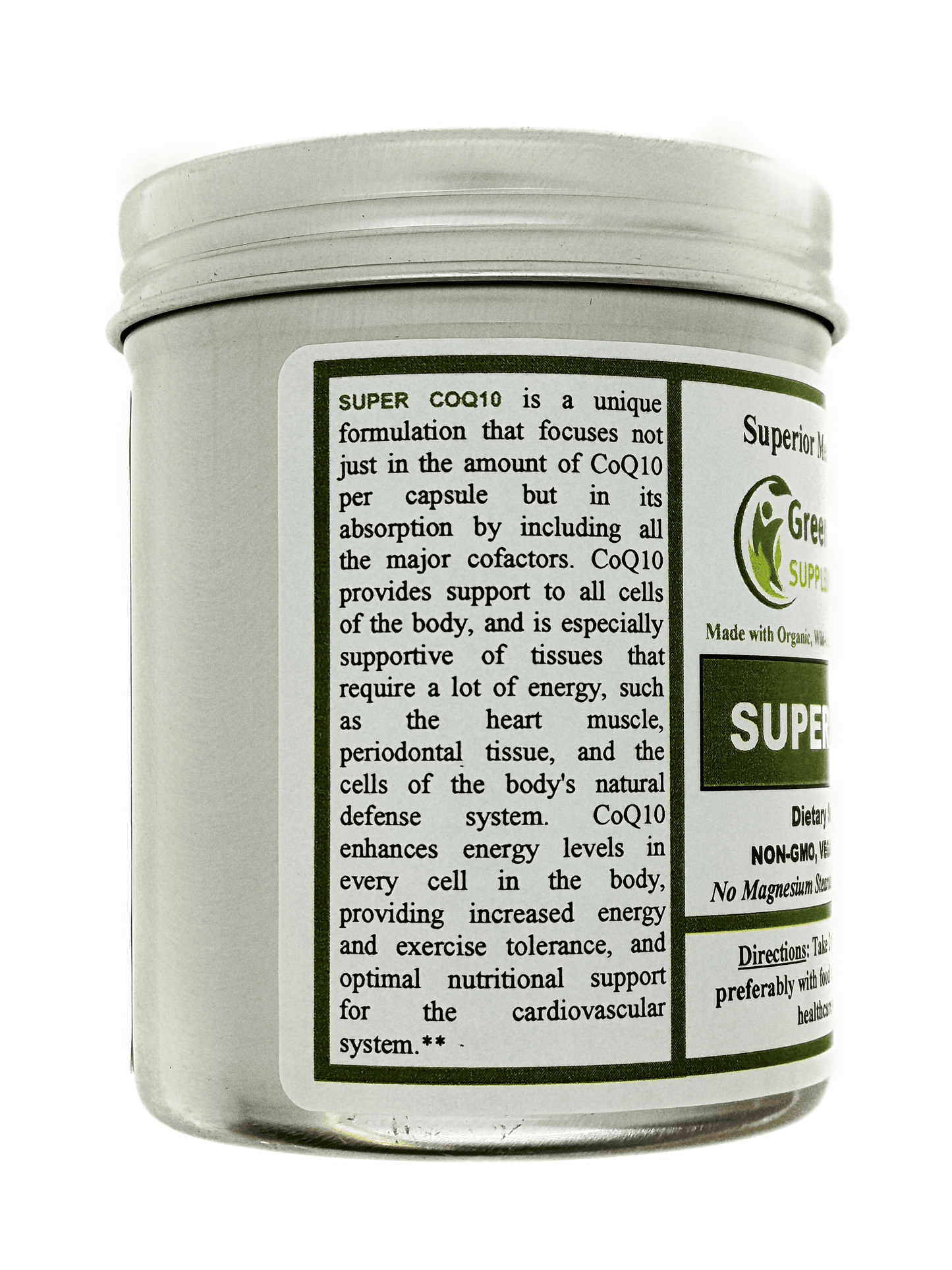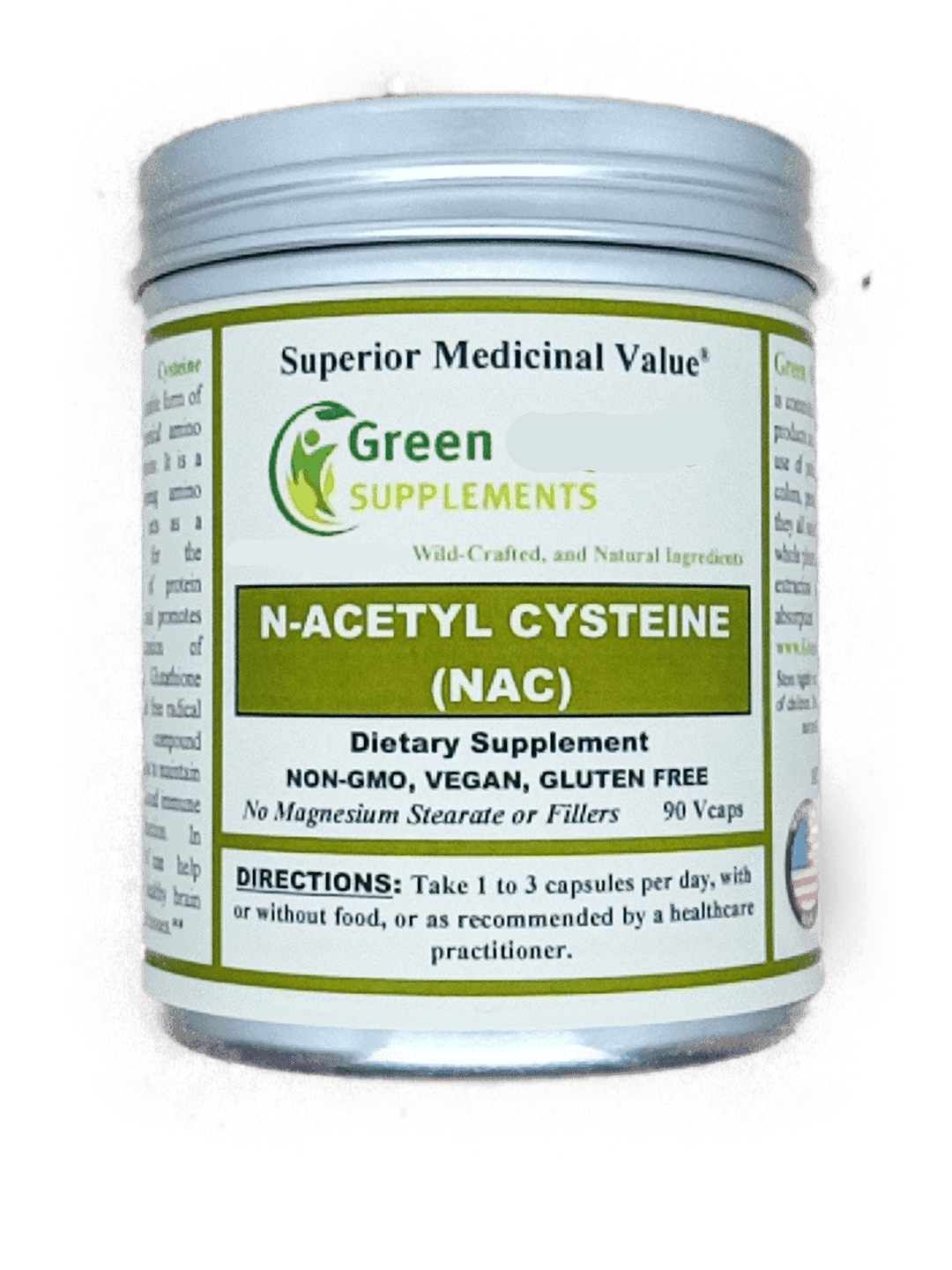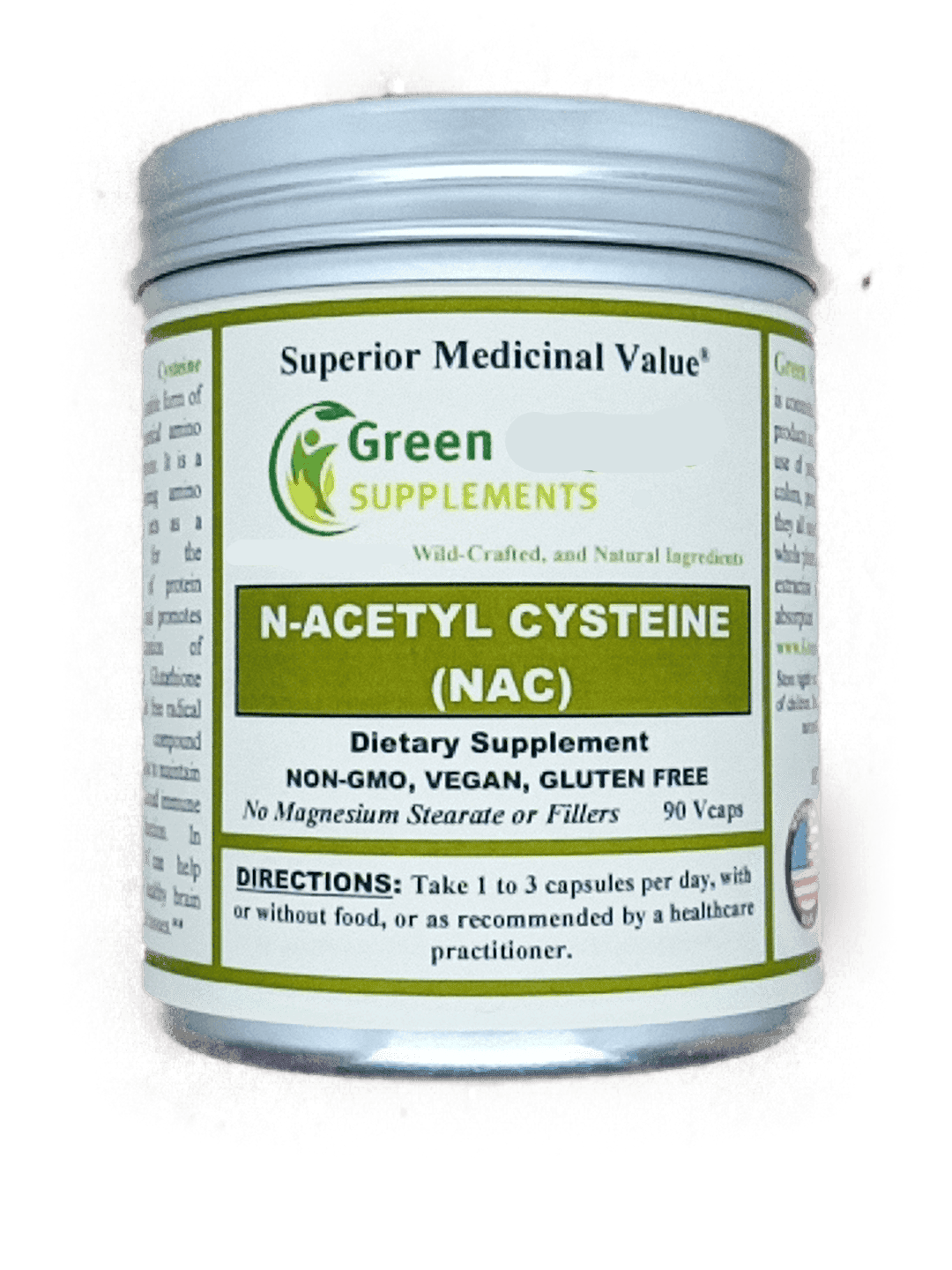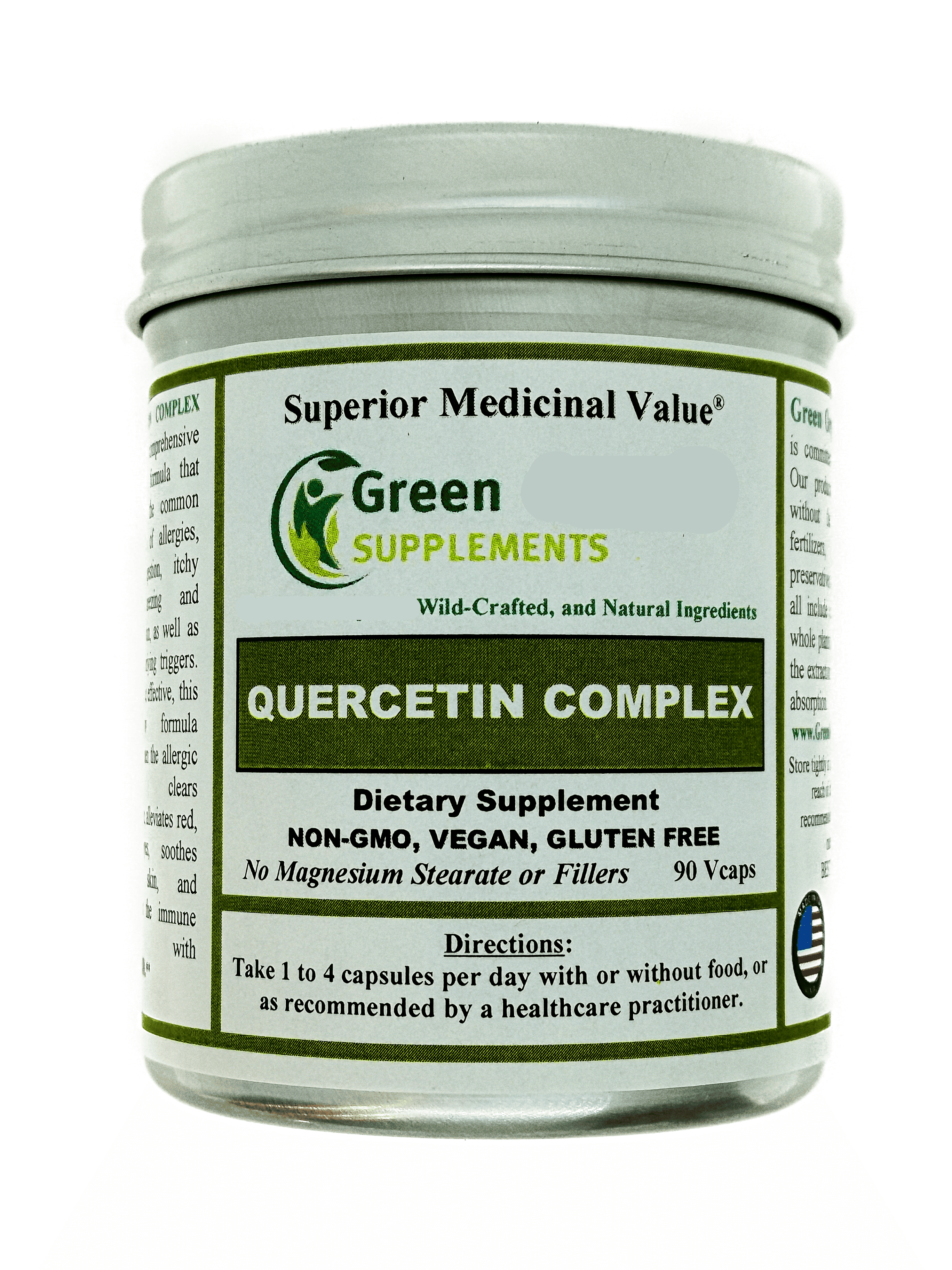COQ10 (Ubiquinone), Super
Buy at Discounted Prices
| Buy | Save |
|---|---|
| 2 or more | 10% off |
| 3 or more | 12% off |
| 4 or more | 13% off |
| 5 or more | 15% off |
Couldn't load pickup availability
Description
Your Security is Protected
Hand Made, Non-GMO, Vegan, & Gluten Free
The essential nutrient Coenzyme Q10 is a necessary component of cellular energy production and respiration. It is a component of the mitochondrial electron transport system, which supplies the energy required for a variety of physiological functions. CoQ10 provides support to all cells of the body and supports the tissues that require a lot of energy, such as the heart muscle, periodontal tissue, and the cells of the body's natural defense system. CoQ10 enhances energy levels in every cell in the body, exercise tolerance, and optimal nutritional support for the cardiovascular system.
CoQ10 bioavailability by itself is low. Super CoQ10 is a unique formulation that focuses not just in the amount of CoQ10 per capsule but in its absorption by including all the major cofactors.**
| Supplement Facts | ||
| Serving Size: 2 VCaps | ||
| Serving per Container: 45 | ||
| Amount Per Serving | % DV | |
| CoQ10 (Ubiquinone) | 530mg | * |
| Organic Cofactors (Coconut & Turmeric) |
400mg | * |
| Organic Citrus Bioflavanoids | 100mg | * |
| Peperine (Organic Black Pepper & Ext. 100:1)1 | 200mg | * |
| Nitric Oxide Complex (L-Arginine, L-Citrulline, Beet Root & Ext. 100:1)1 | 200mg | * |
| *Daily Value not established. | ||
Other Ingredients: plant-derived capsule
1Includes the extract for potency and the whole plant for the cofactors lost at the extraction process.
Directions: Take 2 to 4 CoQ10 capsules a day preferably with food, or as recommended by a healthcare practitioner.
Price $38.98
From WebMD.com
Coenzyme Q10 (CoQ10) is a substance similar to a vitamin. It is found in every cell of the body. Your body makes CoQ10, and your cells use it to produce energy your body needs for cell growth and maintenance. It also functions as an antioxidant, which protects the body from damage caused by harmful molecules. CoQ10 is naturally present in small amounts in a wide variety of foods, but levels are particularly high in organ meats such as heart, liver, and kidney, as well as beef, soy oil, sardines, mackerel, and peanuts.
Coenzymes help enzymes work to digest food and perform other body processes, and they help protect the heart and skeletal muscles.
CoQ10 is available in the United States as a dietary supplement. It is also known as Q10, vitamin Q10, ubiquinone, or ubidecarenone.
What is CoQ10 used for?
Many claims are made about CoQ10. It is said to help heart failure, as well as cancer, muscular dystrophy, and periodontal disease. It is also said to boost energy and speed recovery from exercise. Some people take it to help reduce the effects certain medicines can have on the heart, muscles, and other organs.
Heart failure
If you have heart failure, talk to your doctor before you take any supplement. There's no strong evidence that vitamins or other supplements can help treat heart failure. They are used along with medical heart failure treatments, not instead of treatment.
But you may still hear about CoQ10 supplements and heart failure. CoQ10 has not been shown definitely to relieve heart failure symptoms. Only some of the studies of coenzyme Q10 showed that it helps heart failure symptoms.1
Cancer
In 1961, scientists saw that people with cancer had little CoQ10 in their blood. They found low CoQ10 blood levels in people with myeloma, lymphoma, and cancers of the breast, lung, prostate, pancreas, colon, kidney, and head and neck. Some research has suggested that CoQ10 helps the immune system and may be useful as a secondary treatment for cancer.
CoQ10 may keep the antitumor drug doxorubicin from hurting the heart.
Three studies examined the use of CoQ10 along with conventional treatment for cancer. The three studies contained a total of 41 women with breast cancer. In each study, the women improved.











